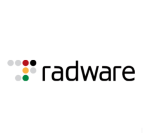We use the solution for securing the Internet-facing servers where you can do the load balancing with the web appliance.
FortiWeb WAF lacks several security features compared to F5. F5 can incept the traffic to layer seven; FortiWeb can do it, too, but it is a tough process. We have to get support from Fortinet.
I have been using FortiWeb as a partner for two years. We are using V7.2 of the solution.
Fortinet has many issues, like the zero-day attacks. Certain critical work vulnerabilities need to be immediately upgraded as an enterprise. You cannot initiate the upgrade anytime because it affects production. Usually, we schedule the upgrade. We do the configuration and scheduling of the updates. Fortinet is a 24/7 company that can release updates any time, regardless of the day of the week. FortiWeb WAF is a security solution that can be updated at any time, irrespective of the day of the week.
The solution is scalable.
On two recent occasions, I experienced delays in resolving technical issues with Fortiweb WAF, particularly when configuring explicit proxies on FortiGate firewalls. As a Fortinet partner, I was disappointed that our dedicated support channel was unavailable and that I could not obtain licenses or hardware assistance despite escalating to the country manager. Additionally, the technical support response times in the Middle East region have been inconsistent, with some areas providing excellent support while others have been unresponsive. This inconsistency has been particularly frustrating when dealing with urgent issues at remote sites. Overall, the support experience for Fortiweb WAF has been inconsistent and frustrating, particularly for Fortinet partners.
I have used Kemp before, but I also dislike the FortiWeb. I'm trying to move to F5 because F5 is very good.
FortiWeb comes with an IP address. You need to log into the web console, and you can do it with the CLI using the console cable. You have to go in; it will initially give you a setup wizard and configure the hostname, interfaces, etc. The setup is relatively easy, but when it comes to advanced deployments. Kemp is a relatively affordable and capable solution. Fortiweb WAF offered all the features, making Kemp less appealing for enterprise-level applications. Kemp is suitable for smaller or regional websites, but it may not be as robust for global deployments.
Additionally, I could not locate the virtual domain feature in Fortiweb WAF. This feature would allow me to assign different domain names to a single website based on the user's location. Fortiweb WAF presented EDS as a workaround, but the process was overly complex and inconvenient.
Firstly, expect load balancing and a web application firewall for the same product Fortinet is offering. Start by booting up the device and use FortiWeb to connect the file by application firewall. There's a default IP address without any password. You log in, and then it shows your initial setup wizard. The wizard helps you set up the host names, Fortinet account, FortiCloud account, etc. After that, you start setting up your physical servers; then you give a virtual server, which will be a point. In a network with a firewall and port forwarding, the FortiWeb WAF device can act as a load balancer and a security gateway. It can receive traffic from the firewall, decrypt SSL/TLS traffic, inspect traffic for layer seven vulnerabilities, and then forward traffic to the appropriate internal server based on load-balancing algorithms and application-specific information provided by the servers. The FortiWeb WAF can monitor server health and performance and automatically switch traffic away from unhealthy servers.
Deployment depends on how much complexity you want to add to the product. If the customer requirement is easy, you may deploy it in one day. For example, I was working on a project with around 16 servers. Each server has a different data source; one server gives the back end, whereas the other provides the front end. That was a complex deployment. It will take around four to five days to deploy if you want to go deeper into it.
We have achieved 70% ROI.
FortiWeb is expensive. F5 is also very expensive, but it is value for money.
The solution’s maintenance and UI are easy, but some features are hidden. Their quality assurance needs to work. We used to have the upgrades and patches every month or 15 days, but now they are coming every week too. We have vulnerability.
The product needs to get more mature.
Overall, I rate the solution a six out of ten.
















